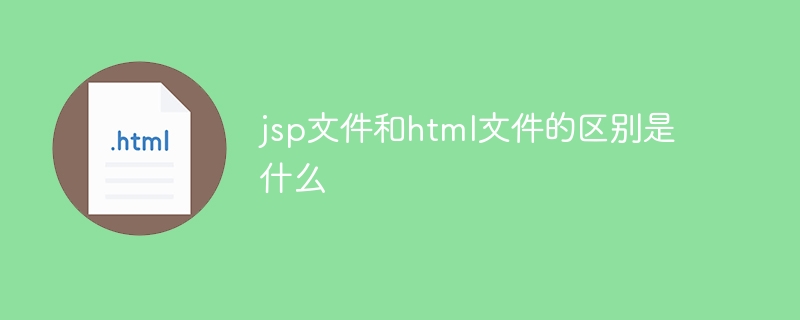
The main difference between JSP and HTML files is that JSP files are executed on the server side, while HTML files are executed on the client side. JSP files can generate dynamic content, while HTML files provide static content. JSP files contain Java script, while HTML files do not. JSP files have a .jsp extension, while HTML files have a .html or .htm extension. JSP files generate HTML responses, and HTML files are sent directly to the browser. JSP is used to create interactive web pages, while HTML is used to create static web pages. JSP file maintenance requires server-side compilation and deployment,

The difference between JSP and HTML files
Definition
Main difference
1. Server side and client side
2. Dynamic vs. Static
3. Scripts
4. Extension
.jsp. .html or .htm. 5. Response generation
6. Usage scenarios
7. Maintenance
The above is the detailed content of What is the difference between jsp files and html files. For more information, please follow other related articles on the PHP Chinese website!
 The difference between article tag and section tag
The difference between article tag and section tag
 emule server link
emule server link
 How to get Douyin Xiaohuoren
How to get Douyin Xiaohuoren
 Introduction to javascript special effects code
Introduction to javascript special effects code
 What to do if the remote desktop cannot connect
What to do if the remote desktop cannot connect
 What are the office software
What are the office software
 The difference between JD.com's self-operated flagship store and its official flagship store
The difference between JD.com's self-operated flagship store and its official flagship store
 How to buy and sell Bitcoin in China
How to buy and sell Bitcoin in China




